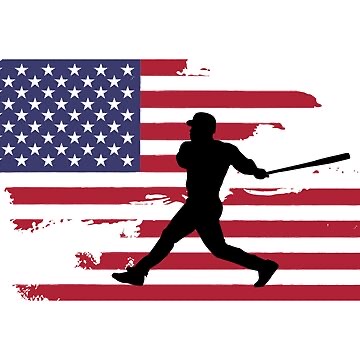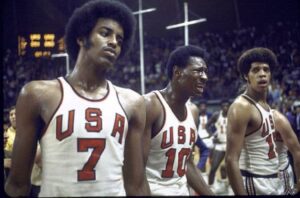Home Runs and Homeland: How Baseball Unites America


America’s National Sport: Baseball — The Heart of American Culture
Baseball holds a special place in the hearts of Americans. Widely considered the national sport of the United States, it has evolved from a simple pastime to a cultural phenomenon that unites generations. With its unique blend of strategy, skill, and tradition, baseball remains an enduring symbol of American life. This article will explore why baseball is considered America’s national sport, its rich history, cultural significance, and its continued impact in the modern era.
The Origins of Baseball in America
The roots of baseball can be traced back to the early 19th century. While its exact origins are debated, it is widely believed that the game was influenced by European sports like cricket and rounders. By the mid-1800s, the game had gained widespread popularity in the United States.
In 1845, Alexander Cartwright formalized the rules of baseball, which laid the foundation for the modern game. The first officially recorded baseball game took place in 1846 between the Knickerbocker Baseball Club and the New York Nine in Hoboken, New Jersey. This match marked the beginning of baseball’s journey to becoming America’s national sport.
Baseball’s Rise to National Prominence
Baseball quickly gained traction during the late 19th century. With the establishment of professional leagues such as the National League in 1876 and the American League in 1901, the sport became a nationwide spectacle.
The turn of the 20th century saw legendary players like Babe Ruth, Lou Gehrig, and Ty Cobb capturing the imagination of fans across the country. Stadiums filled with spectators, and radio broadcasts brought the excitement of the game into homes, further cementing baseball’s status as America’s favorite pastime.
During World War II, baseball became a source of comfort and entertainment for the American people. Players who served in the military were celebrated as heroes, and the sport symbolized American resilience and unity.
Why Baseball Is Considered America’s National Sport
- Cultural Significance
Baseball has become ingrained in American culture. The sport is often associated with family traditions, summer afternoons, and the iconic seventh-inning stretch. Baseball references are also prevalent in American literature, movies, and music.
The sport’s values of teamwork, perseverance, and fair play resonate with American ideals, making it more than just a game—it’s a representation of the American spirit.
- Historical Impact
Baseball has played a significant role in shaping American history. It was one of the first major sports to break racial barriers when Jackie Robinson became the first African American player in Major League Baseball (MLB) in 1947. His courage and talent paved the way for integration not just in sports but in American society as a whole.
- Community Connection
From Little League games to Major League championships, baseball brings communities together. Local teams foster a sense of pride, and attending games becomes a cherished social event.
The iconic baseball stadiums, such as Fenway Park in Boston and Wrigley Field in Chicago, are more than just venues—they are historical landmarks that evoke a sense of nostalgia and tradition.
- The World Series: An American Tradition
The World Series is one of the most anticipated sporting events in the United States. It has been a tradition since 1903, bringing together the best teams from the American and National Leagues.
Winning the World Series is considered the pinnacle of success in baseball. The championship series captures the attention of millions of fans, reinforcing baseball’s role as a national sport.
Baseball in the Modern Era
- Technological Advancements
The digital age has transformed the way fans engage with baseball. Live streaming, social media updates, and virtual experiences have made it easier for fans to stay connected with their favorite teams and players.
Advanced analytics have also changed the way the game is played and managed, making it more strategic and data-driven.
- International Influence
While baseball is deeply rooted in American culture, its popularity has spread globally. Countries like Japan, the Dominican Republic, and Cuba have embraced the sport, producing some of the world’s most talented players.
The World Baseball Classic, an international tournament featuring teams from around the globe, highlights the global appeal of the sport.
- MLB’s Efforts to Engage Younger Audiences
To maintain its status as America’s national sport, Major League Baseball (MLB) has implemented various initiatives to attract younger audiences. These include shorter game formats, youth programs, and partnerships with digital content creators.
The Economic Impact of Baseball
Baseball is a multi-billion-dollar industry in the United States. From ticket sales and merchandise to broadcasting rights and sponsorships, the sport contributes significantly to the economy.
Local businesses also benefit from game days, as fans flock to stadiums and nearby establishments. The economic ripple effect of baseball underscores its importance beyond just entertainment.
Challenges Facing Baseball
- Competition from Other Sports
In recent years, sports like football and basketball have gained immense popularity in the United States. The fast-paced nature of these sports appeals to modern audiences who prefer quicker and more action-packed experiences.
- Pace of the Game
One common criticism of baseball is its slow pace. Efforts have been made to speed up the game, such as implementing pitch clocks and reducing the time between innings.
- Maintaining Cultural Relevance
As American society continues to evolve, baseball faces the challenge of staying culturally relevant. MLB’s efforts to diversify its fan base and embrace technological advancements are steps in the right direction.
Baseball’s Timeless Appeal
Despite the challenges, baseball continues to hold a special place in American culture. Its rich history, iconic moments, and ability to bring people together make it a timeless sport.
Whether it’s a father teaching his child how to throw a baseball, a group of friends attending a game, or a community rallying behind its local team, baseball creates lasting memories.
As America evolves, baseball remains a symbol of tradition, unity, and resilience—a true testament to its status as the national sport.
Conclusion
Baseball’s journey from humble beginnings to becoming America’s national sport is a testament to its enduring appeal and cultural significance. With its deep roots in American history, its role in shaping societal values, and its ability to bring people together, baseball will continue to be a cherished part of American life for generations to come.
As the sport embraces innovation while preserving its traditions, one thing is certain—baseball will always be more than just a game; it will remain a cherished symbol of American identity.







